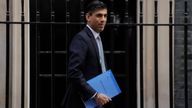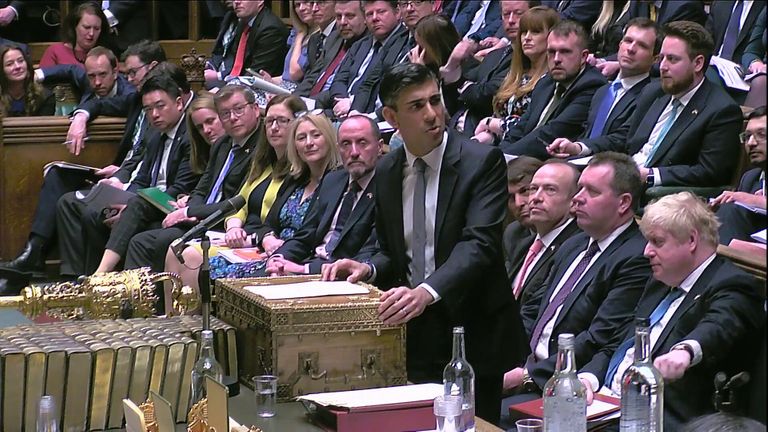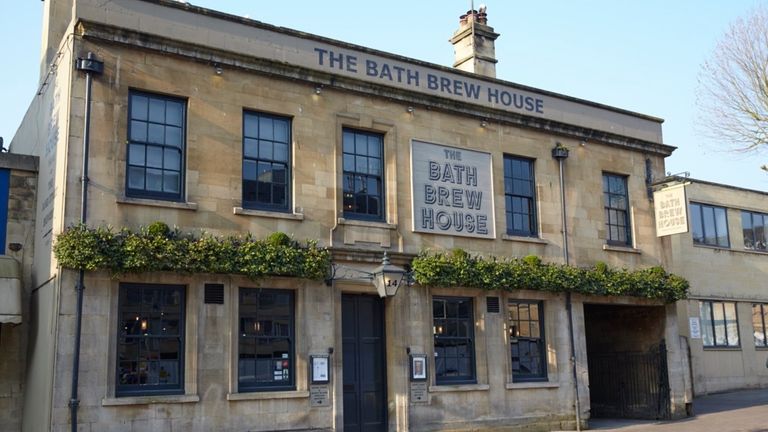What Rishi didn’t include in the spring statement is just as important as what he did
For years, there has been a big debate over whether National Insurance is merely income tax under another name.
A lot of people wrongly assume NICs pay for their state pension, not realising in fact it is just another payroll tax.
The big news in this spring statement was that Rishi Sunak appears to agree that there is little difference between NI and income tax.
By raising the threshold at which NI becomes payable to £3,000, bringing it to £12,570, the chancellor has brought NI into line with income tax. It can be seen as a step towards eventually merging income tax and NI into one levy and will be seen as a very welcome tax simplification.
Make no mistake, this was a huge giveaway from the chancellor, costing £6bn. It hands back almost half of the £12bn Mr Sunak is seizing in his forthcoming increases in employers’ and employees’ NI contributions.
Paul Johnson, director of the Institute for Fiscal Studies, pointed out that this will compensate seven in 10 workers for the forthcoming increases in NICs.
It helped – along with his promised tax cut for 2024 – underline Mr Sunak’s point that his priority, should extra money become available in coming years, will be to cut taxes rather than raise spending.
Leaving aside one-off hits like the global financial crisis, the pandemic and now the war in Ukraine, the big challenge to the UK economy has been its dismal productivity record and poor skills base.
Part of that reflects weak levels of business investment which, as the Treasury pointed out today, was worth just 10% of UK GDP in 2019 – the last year before the pandemic – compared with 14% on average across the OECD.
Numerous chancellors have sought to address this and Mr Sunak tried to do so today with a raft of measures aimed at encouraging business investment, including a reform of tax credits for research and development (R&D) and, of particular interest to smaller businesses, an increase in the employment allowance to £5,000 – although it must be stressed that not all businesses qualify for the employment allowance.
This was not as generous a giveaway as Mr Sunak suggested.
There were also tweaks to other tax reliefs on business investment. This was perhaps a reflection that Mr Sunak’s “super-deduction” – a move aimed at getting businesses to invest more ahead of next year’s hike in corporation tax from 19% to 26% – has not stimulated the activity he hoped it would.
When the super-deduction – which lets businesses write off the costs of investment in plant and machinery against their taxable profits – comes to an end, vestiges of it will remain.
The annual investment allowance, letting companies write off investment against their tax bill, will be temporarily remain for another year at £1m – up from the previous allowance of £200,000 – and will cost the Chancellor some £2bn.
This is not as generous to businesses as the existing “super-deduction” but will nonetheless be welcomed.
Possibly more significant are the promised cuts in tax rates on business investment in the autumn Budget. Documents published by the Treasury today laid out some of the options, including keeping the annual investment allowance at £500,000 permanently.
Just as significant is a recognition from the chancellor that the Apprenticeship Levy, announced in 2016 by his predecessor-but-two, George Osborne, has been a cause of “frustration” to employers.
The Treasury is accordingly going to review whether the current tax system, including the levy, is doing enough to incentivise businesses to invest in the right kind of training.
This will be welcomed by businesses – although there is likely to be annoyance that the chancellor has only announced a string of reviews rather than firm policy decisions.
There were, however, some very interesting tweaks to the R&D tax reliefs that reflected the changing nature of the UK economy. They include a rule change that will allow UK businesses to continue qualifying for tax reliefs even when some R&D work is done overseas.
R&D relief will now also apply to costs incurred in data storage, which as the Treasury noted, will support work done on “data-heavy research such as genomic sequencing”.
Other measures are also planned that will incentivise more work in sectors such as Artificial Intelligence, quantum computing and robotics – all sectors of the economy growing strongly.
The Treasury also took the opportunity to remind businesses of its support for the hospitality and retail sectors via a new temporary 50% business rates relief that enables companies in those sectors to claim a 50% discount on their business rates up to £110,000.
This was first announced in Mr Sunak’s October Budget.
But it is also worth flagging what was not in this statement. There was no support for businesses, particularly manufacturers and other energy-intensive users, grappling with elevated fuel bills.
Nor was there support for hospitality and tourism with a continuation of the temporary 12.5% VAT rate for the sector.
Hospitality and tourism services will now attract VAT at the pre-pandemic rate of 20% – not something that bodes well for businesses in those sectors trying to get back on their feet after the pandemic.
And, of course, employers will still face the punishing 1.25 percentage point increase in employer’s NICs come the start of the new tax year.
The big question is whether any of these measures will stimulate growth.
The scale of the challenge facing the chancellor was laid out early on in the statement as he trotted out the latest forecasts from the Office for Budget Responsibility: predicted GDP growth this year was lowered from 6% to 3.8% and for next year from 2.1% to1.8%.
Worse still, the OBR is clearly pessimistic about the longer term harm that the war will do to the economy, with predicted growth in 2024 – likely to be the year of the next general election – cut from 2.1% to 1.3% and in 2025 from 1.8% to 1.6%.
These are depressing numbers indeed and will make the job of patching up the public finances, battered by the pandemic, all the more difficult.
The lower growth outlook was not the only unpleasant surprise from the OBR. It also now expects inflation to average 7.4% this year – almost double the 4% it was forecasting at the time of Mr Sunak’s Budget in October.
That will represent a real squeeze on households, which Mr Sunak sought to ameliorate, as expected, with a 5p-a-litre cut in fuel duty, which will last one year.
This was a giveaway worth more than £2bn although it will, as the RAC pointed out, only clip only around £3.50 from the cost of filling up the average family car.
As significant here, again, was what Mr Sunak did not do – raise Universal Credit, as the Resolution Foundation had urged, to help the poorest families.
Nor did he move green levies from household bills to general taxation – perhaps a measure being held in reserve for when the price cap on household energy bills is increased again in October? – or extend the energy rebates he announced last October.
The danger is that the growth forecasts are even, at these levels, still too optimistic. Should the war in Ukraine continue for many months, sparking further inflation in a range of commodities, 3.8% growth for this year looks decidedly starry-eyed.





